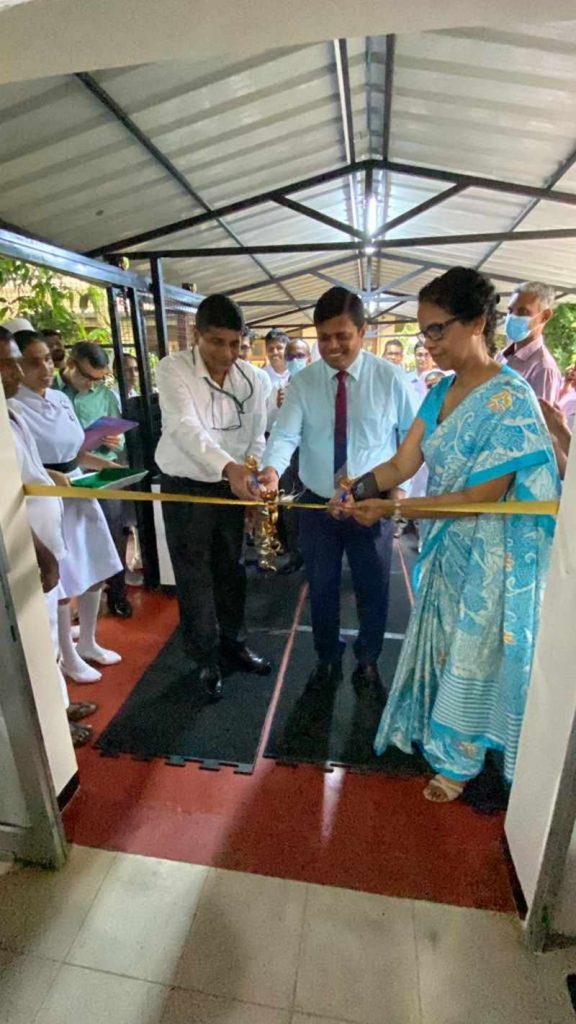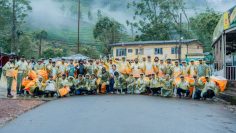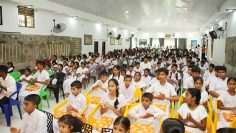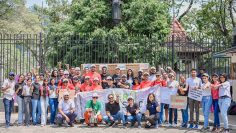
Caring for communities: Haycarb prioritises CSR efforts to health sector in its 50th anniversary year
- Renovates Karapitiya Cancer Treatment Unit and NHSL Plastic Surgery Unit
- Donated over 380,000 bottles of activated carbon powder FOC to hospitals island-wide
- Over Rs. 13mn invested in supporting the healthcare sector
Highlighting the pivotal role of the healthcare sector in safeguarding public well-being and saving lives, Haycarb, a member of the Hayleys Group and a leading manufacturer of high-value coconut shell activated carbon, has successfully completed essential renovations at two leading national hospitals.
The exporter invested over Rs. 13 million in renovating the Plastic Surgery Unit at the National Hospital of Sri Lanka (NHSL) and the Cancer Treatment Unit at the Karapitiya Teaching Hospital (KTH). The recent renovations add to a 20-year donation drive of over 380,000 bottles of its patented Activated Carbon (RMPP1001) to treat victims of poison ingestions or drug-related overdoses, distributed to hospitals across the island. Haycarb is also actively involved in the Group-wide hospital donation programmes that began with COVID, donating over Rs. 10Mn in PPE to IDH, whilst delivering medicine and equipment to hospitals island-wide.
“Sri Lanka’s healthcare sector has bravely survived and served through the nation’s most challenging times, consistently working towards protecting the people of Sri Lanka. Last year’s economic crisis strained the system, already grappling with the challenges of the Covid-19 pandemic.
“Over the past years, we have supported the public healthcare sector by providing our invaluable activated carbon for patients. Our 50th year celebrations are all about coming together to drive value and change lives, and so we wanted to extend our support further for the benefit of Sri Lankan society. I’m very proud of our team for their coordinated efforts, which are impacting patients’ outcomes and lives in significant and meaningful ways,” Haycarb Managing Director, Rajitha Kariyawasan said.

Accordingly, Haycarb restored the only Plastic Surgery Unit in the country at the NHSL, which provides burn care and reconstructive surgery. The Day Surgery Unit, Physiotherapy Unit and Ward No.4 were refurbished with partitions to improve patient privacy and hygiene, and were upgraded with new technology, as well as medical and sanitary equipment.
NHSL Plastic Surgery Unit Day Procedure Ward, Dr. Gayan Ekanayake expressed his appreciation for Haycarb’s efforts, stating “The ward sees about 15-20 admissions daily, with around 100-150 patients being treated at the day surgery unit. Prior to the renovations, patients would have to wait in long queues to receive treatment due to limited facilities, with the conditions of the unit also deteriorating. Haycarb’s involvement in rebuilding this project was astounding, managing to keep the operations of the unit running while simultaneously working around the clock to ensure that the renovations were done as fast as possible.”
Similarly, the team also renovated the Cancer Treatment Unit at KTH, refurbishing the ward’s ventilation, washrooms and interior. Haycarb further repaired the communication system for the in-patient isolation room after radio/iodine therapy and constructed a separate area for garbage bins and trolley storage.
“Particularly with our responsibilities and the aftereffects of the economic crisis, the administration of KTH was facing several challenges in carrying out crucial renovations. Haycarb’s involvement in the renovation project transformed the wards completely. On behalf of the administration and patients, we wholeheartedly thank Haycarb and the team who carried out this project for their kindness and commitment, and will always remember your service,” said KTH Consultant Clinical Oncologist, Dr. Nuradh Joseph.
Proven to be an effective and affordable antidote that has saved thousands of lives in Sri Lanka, the activated carbon produced by Haycarb has become the primary treatment for victims of attempted suicide and other poisonings, replacing the more expensive antidote alternatives in hospitals overseas.






